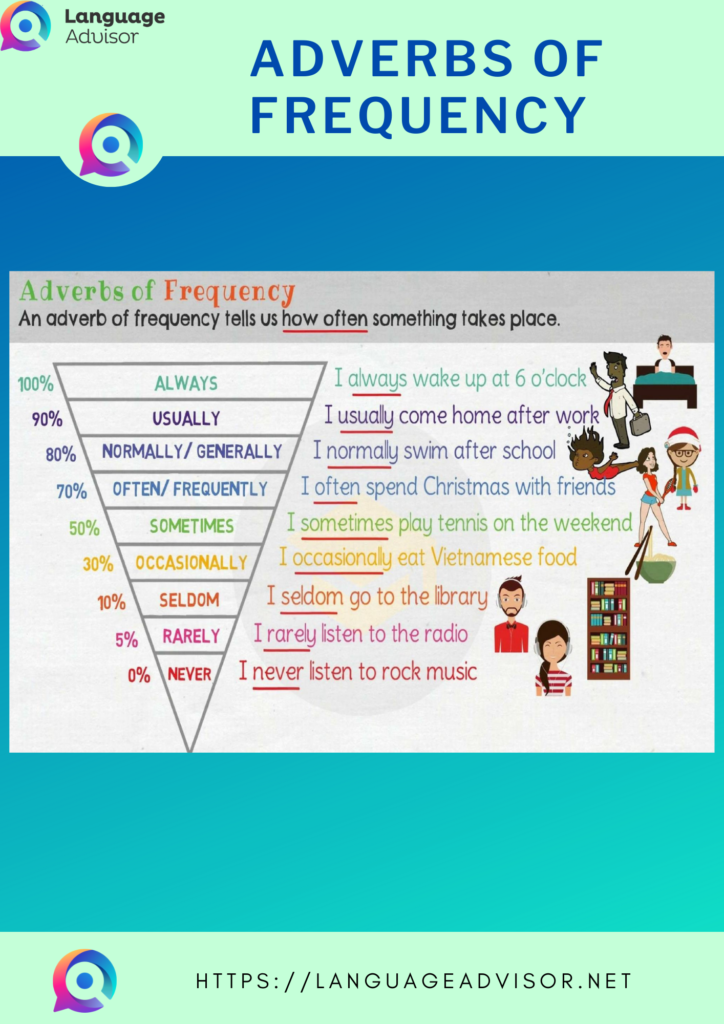

An adverb of frequency describes how often an action happens. There are six main adverbs of frequency that we use in English: always, usually (or normally), often, sometimes, rarely, and never. They differ in the level of frequency. The most common position for adverbs of frequency is between the subject and the verb. For example: Jack always goes out on Saturday evenings. With sentences using the verb ‘to be’, the adverb of frequency comes after the verb. For example: It’s often difficult to find a place to park. But it’s possible to put the adverbs ‘sometimes’ and ‘usually’ at the beginning of a sentence: Sometimes she does her homework with friends. Usually they study on their own. With a modal verb in the sentence, we put the adverb of frequency after it and before the main verb. For example: You must always try your best. We can usually find a seat on our train. They should never be rude to customers. The same rule applies for an auxiliary verb – the adverb of frequency goes between the auxiliary verb and the main verb. For example: I have never visited Turkey. He’s always taking things from my desk. It’s really annoying.
ADVERBS OF FREQUENCY EXERCISE 1. Re-write the following sentences putting the adverbs of frequency in the right place. e.g. I do my homework. (after dinner usually) I usually do my homework after dinner. She goes out with friends. (in the evening – often) Mr. G. has a beer and some chips. (at lunch time – usually) We have a picnic at the beach. (in the summer – often) I have snacks. (before dinner – never) They have lunch. (at one o’clock –always) British students go to school. (on Saturdays – never) 7. I eat meat. (sometimes) 8. They go to the disco. (seldom) 9. She likes playing tennis. She plays it. (always) 10. He listens to the radio. (often) FREQUENCY ADVERBS Frequency adverbs are used to demonstrate how many times a person or an object does something. EXERCISE 1. E.g. Ben goes to the cinema twice a month. Angela always washes the dishes. Use the table to answer the following questions.
| Week | Month | Year | |
| Jennifer | Swim x 1 | Shop x 4 | Travel to London x 1 |
| Henry | Watch TV x 2 | Eat pizza x 6 | Go to dentist x 3 |
EXERCISE 2.
| Study | Read | Play football | Visit a museum | |
| Frank | Often | Usually | Always | seldom |
| Jessica | Always | Rarely | Never | sometimes |
ADVERBS OF TIME AND FREQUENCY
EXERCISE 1.
Fill in the gaps with one of the following:
| Still yet just already never ever always sometimes usually often |
EXERCISE 2.
Put the adverbs in the right places.
e.g. You are right. (always) à You are always right.